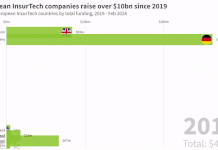Combating fraud often feels like an unwinnable battle, but firms can do a lot more than they think to prevent scams.
The FBI’s Internet Crime Complaint Center (IC3) received nearly 850,000 complaints from the American public in 2021. This was a 7% increase from the previous year. Last year, scam losses neared $7bn.
This worrying state of affairs is similar across the globe. Scams were up 89% in Australia during the first nine months of 2021, in Singapore scam losses grew by 165% in 2021 and scams were up 71% in the UK in H! 2021.
Quantexa has released a report on how firms can combat scams.
It stated that while pressure is on financial institutions to protect unsuspecting victims, stopping these attacks requires them to fix the root of the problem, which is online platforms and social media – 70% of scams originate from these locations.
It continued to state that fraudsters are early adopters of technology and are constantly enhancing their attacks. They are already using QR codes and the metaverse in their scams.
Quantexa stated that regulators are trying to slow the growth of scams and protect blameless victims, which could see banks have more supervisory visitors from regulators to monitor their anti-fraud controls.
Furthermore, in May 2022, the UK’s government established plans that would give regulators the power to force banks to offer compensation to victims of “push payment” scams, highlighting “disparities” in the current voluntary approach.
This followed the UK’s Contingent Reimbursement Model, which launched in 2019, and defines when and how victims should be reimbursed by banks. Reimbursement rates for fraud have now allegedly risen from 20% to 45%.
The report added that as the proliferation of scams rises, there is an urgent need for more in-depth investigations and reporting to disrupt fraudsters and protect customers.
It said, “Both the Consumer Finance Bureau Protection (CFBP) and the Financial Conduct Authority (FCA) have noted that they are going to focus their attention on FinTechs and digital banks, which is an indication that global regulators are realising that to tackle scams, the full ecosystem needs to be considered. As stated by the FCA, “There cannot be a trade-off between easy account opening and robust financial crime controls.””
The report highlights advanced analytics as a key solution to improve scam detection.
It said that while customers become savvier about scams, the rising number of financial products and engagement platforms increases the opportunities for criminals to trick a customer.
Layered defences have often been a major security method for companies in cybersecurity procedures, Quantexa believes it works the same for bank fraud prevention. Adding extra layers of scam detection and prevention will stop more successful attacks.
It added, “While this is a powerful method, there is a growing need for financial organisations to harden their defences to stop and prevent these losses, and the best method to accomplish this is by taking a more contextual approach.
“Advanced analytics technology, like Contextual Decision Intelligence, which is underpinned by entity resolution and advanced analytics technology consolidate data points around people of interest to generate a single customer view and spot subtle patterns more quickly than a human investigator, therefore creating a fuller picture of risk.”
In other news, Quantexa recently revealed it has secured a 144% net retention rate and 70% increase in committed ARR for its fiscal year 2022.
Find the full report here.
Copyright © 2022 FinTech Global Top of Form











